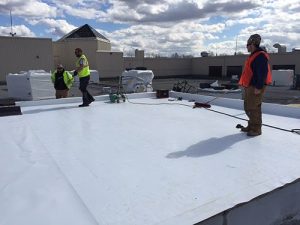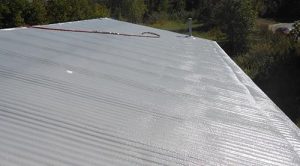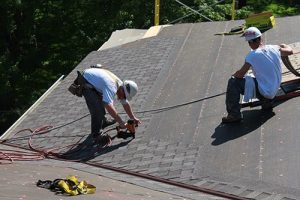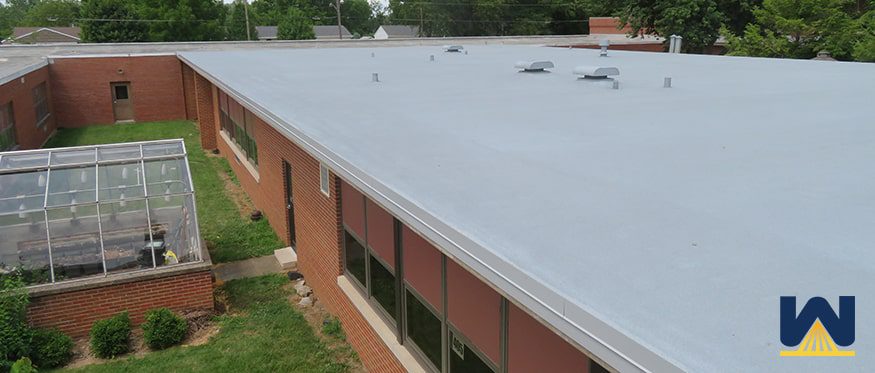So, you’re having a roofing issue and wondering who to contact.
But just because they have “roofing” in their name, does that mean they are qualified to repair MY roof?
Well, that depends on what “MY” roof is.
Is it residential? Is it commercial? Are you only interested in a specific type of roofing system?
Getting a quote from any roofing company is just like getting a brake repair quote from any place that deals with cars.
Car dealerships, local mechanics, and specialized brake shops can all repair your brakes.
But which one is best for your brake repair job?
The dealership is probably best if you have a warranty or have purchased the car there. The local mechanic deals with all types of repairs or cars that need more than one service. The specialized brake shop only does brake repairs. They probably have seen every issue with brakes, have spare parts, special tools for brake lines, etc.
Every car repair shop isn’t equal, just like every roofing company.
Since 1979, West Roofing Systems has specialized in commercial roofing and installing two types of roofing systems, spray polyurethane foam and silicone roof coatings.
We probably aren’t your best option if you need a roof for a residential house.
But why is that so?
In this article, we want to clarify the three types of roofing contractors, what they are good at, and what they are bad at. The goal is to help you choose the right roofing contractor.
Let’s get started.
Commercial roofing contractors
Characteristics of a roof that’s the best fit for commercial roofing contractors: Usually 20,000+ square feet and within 150 miles of the roofing contractor. Commercial roofing contractors usually install flat or low-slope roofs. They usually only install metal, single-ply, silicone roof coatings or spray polyurethane foam roofing systems.
Commercial roofing contractors usually specialize in larger buildings (more than 5,000 sq. ft.). The reason is that they have a large staff of roofers (most likely 50 or more) who can work in teams of 5-20 to complete commercial roofing projects quickly.
The larger your roof is, the wider your range in choosing a commercial roofing contractor cost-effectively.
For example, if your commercial roof is 2,000 sq. ft., it would cost a contractor 200 miles away more than a contractor right down the street.
If your roof is 200,000 sq. ft., your range to finding a roofing contractor widens. This is because overhead costs (such as gas and time to get to your roof) are a meager percentage of the total cost of the job.
The larger the project, the more options you have (cost-effective-wise) in choosing the best roofing contractor.
Tips for choosing the best commercial roofing contractor:
- How long have they been in business?
- Do they have references you can call?
- Have they performed similar work that will be done on your roof?
- Do they have any certifications or awards?
Suppose you have a residential house and want a quote from a commercial roofing contractor. In that case, the price may be higher than you expected.
The reason is that commercial roofing contractors usually have:
- A large service team that’s on the payroll
- A full administrative team that’s on the payroll
- Offer insurance, training, vacation, and full benefits to employees
A commercial roofing contractor is set up to perform large projects cost-effectively. Since they have a large amount of overhead, it doesn’t allow them to be the most cost-effective for residential roofs.
Residential roofing contractors
Residential roofing contractors are known for performing shingle work in local areas. Shingles are the roofing system that most residential roofing contractors use because of their aesthetics.
A metal roof wouldn’t look as appealing as a shingle roof, which can have many design options to best match the rest of the house.
Residential roofing contractors are great at getting to your house and performing the work quickly. This is mainly due to roofing contractors only sticking to local areas.
Hiring a residential roofing company from 200 miles away wouldn’t make much sense.
The costs associated with traveling would make the job very inefficient.
Residential roofing projects tend to cost between $5,000 – $20,000 depending on a lot of factors, such as:
- How many square feet is the roof?
- How many layers of shingles are going to be applied?
- Does any deck work need to be repaired before anything is installed?
- How fast does the job need to be done?
- How high is the house in the air?
All of the factors include fluctuations in labor, time, or material, which add up to the project’s cost.
Characteristics of a roof that’s the best fit for residential roofing contractors: The roof is usually under 5,000 square feet and within 50 miles of the roofing contractor. Residential roofs can be low-slope or high-slope (rarely will there be a flat roof). They usually install shingle roofs.
System-specific roofing contractors
A roofing contractor can be commercial or residential, but the type of system they specialize in can differentiate themselves.
This benefits a property owner who’s already researched what type of roof they want. Now it’s time to find a contractor specializing in that roofing system.
Here are the most common types of roofing systems and a quick summary of each.
Spray Polyurethane Foam
Spray polyurethane foam, or spray foam, is a roofing system installed as a liquid. It expands into a foam, creating a closed-cell, monolithic layer over an existing roofing system.

The best part about a spray foam roof is that the initial installation requires the least amount of tear-off of the existing roof as possible.
Also, a spray foam roof is renewable, which means after its warranty (10-20 years), all that needs to be done is to clean the roof and add more coating overtop. This gives the roof another 10-20-year warranty, doesn’t require any tear-off, and is installed for ½ to 1/3 of the cost of any other roofing system.
Single-Ply
Single-ply roofing systems are sheets of rubber or synthetics that can be ballasted (use rocks to hold the roof down), mechanically fastened (use screws and plates to hold the roof down), or chemically adhered (using adhesive to hold the roof down).
The most common single-ply systems are TPO and EPDM.

The best part about a single-ply roof is that it’s easy for a roofing contractor to install, which means it can be less expensive than other roofing types.
Metal
Metal roofing is the use of large metal panels that are installed over the insulation on a roof. Most metal roofing systems use corrugated galvanized steel, although other materials such as aluminum or tin can also be used.

The best part about a metal roofing system is that it typically lasts about 50 years without replacing the metal panels.
Shingle
Shingles are mainly for residential housing because of aesthetics, but they are also common in other structures such as churches and barns.

Shingles can be made from wood, slate, metal, plastic, ceramic, and composite materials such as asphalt.
The best part about shingles roofs is that plenty of contractors can install them, and there are many options for colors and design.
Silicone Roof Coatings
Silicone roof coatings are a newer roofing solution that commercial buildings are installing. In the simplest terms, it’s installed by:
- Removing all the saturated areas off of the current roof
- Replacing the saturated areas with new, dry materials
- Cleaning the existing roof
- Adding coating overtop of the entire roof
There are other steps, such as adhesion tests to ensure the coating will perform as it should, seam treatments if the roof has seams, and a few other quick steps. You can watch an entire silicone roof coating installation in this video:
The best part about silicone roof coatings is that they usually save the building owner money on their energy costs because the coating reflects the sun.
Another benefit is that silicone roof coatings are considered a repair and not another roofing system.
This is critical for roofs with two or more roofing systems installed.
Due to building codes stating that the maximum amount of roofing systems a commercial roof can have is 2, an entire roofing system may need to be removed to install any other roofing system besides silicone coating.
Can you locate the best roofing company for you?
I’m sure you know if you’re looking for a residential or commercial roofing contractor.
This writing aims to explain why if you’re looking for a residential roofing contractor, it’s not beneficial for you to seek a commercial roofing company.
And vice-versa.
Roofing companies are built to give their target market the best product for the best price. And to do so, they need to specialize in what they offer.
West Roofing Systems specializes in spray foam roofing and silicone roof coatings for commercial buildings. We are not the best fit for every roofing situation.
The best advice we can give you is to research all the available roofing systems: what’s good about them, what’s bad, what’s the lifetime cost of each system, etc.
And then choose the roofing contractor you trust the most!


